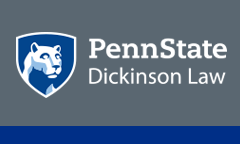Document Type
Article
Publication Date
2022
Abstract
The rightwing is carrying out its most recent effort to install an authoritarian regime in America, which has been boosted by Donald Trump’s white supremacist rhetoric and actions before, during, and after his four years holding the Office of the President of the United States. Resolute in the effort to destabilize American Democracy by forcing on to the populist, among other messages, “The Big Lie,” the rightwing is committed to a coordinated strategy of attacking and delegitimizing democratic institutions for the purpose of retaining economic and political power.
The attack on Critical Race Theory (“CRT”) is one element of the strategy to assault liberal democracy that has caught fire. Though CRT is in the crosshairs, higher education institutions represent the larger target, because they are the places and spaces where critical thinking, public discourse, and reasoned debate are practiced in furtherance of liberal, democratic ideals. Thus, the targeting of CRT is intended to chill specific speech representing various perspectives and viewpoints that critique the dominant white hierarchy. The objective of the rightwing assault is to propagate unreality, division, and fear to thwart the outcomes of a liberal democracy—equality, multiculturalism, and intellectualism.
The attacks on CRT are only one in a salvo of new and growing incursions on conveying truth in educational spaces. The intention is to whitewash America’s history of racism and racial oppression, while at the same time eliminating the critical roles that dissent and contestation play in strengthening the “democratic health of [American] society.” The unjustified barrage on CRT is a pretext for the erosion of freedom of thought and inquiry in our higher education institutions. Higher education institutions have the resources to archive truth, intellectual inquiry, dissent, and contestation and, therefore, must be out front in the battle for the hearts and minds of the next generation of critical thinkers.
This Essay discusses one approach for understanding the scope of CRT, explains why attacks on CRT are undemocratic, and concludes by suggesting how higher education institutions should respond to the attacks on CRT.
Publication Title
Saint Louis University Law Journal
Recommended Citation
Danielle M. Conway, The Assault on Critical Race Theory as Pretext for Populist Backlash on Higher Education, 66 St. Louis U. L.J. 707 (2022).



Comments
Originally published in 66 St. Louis U. L.J. 707 (2022).